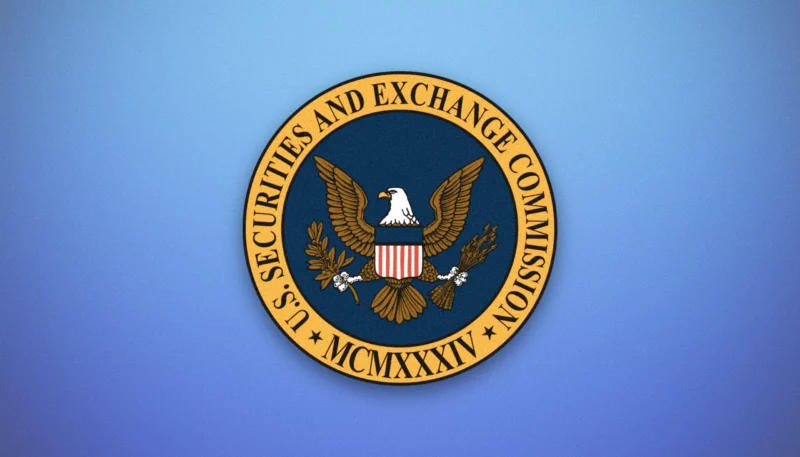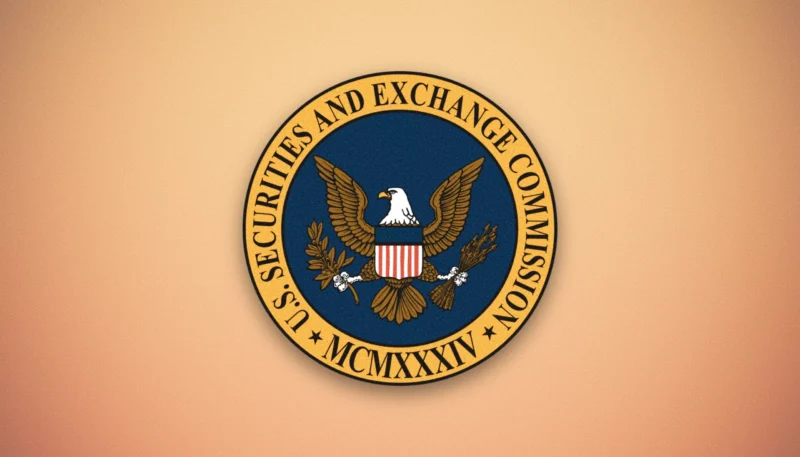Recently, there has been a lot of buzz involving so-called “Initial Coin Offerings” (ICOs), which are crowdfunded offerings powered by distributed ledger technology (a.k.a. “the blockchain”), which is also the technology behind cryptocurrencies, such as Bitcoin. Instead of selling equity, companies that use ICOs sell digital “tokens” to investors. These tokens entitle the holders to certain rights, such as the right to a portion of the future cashflow of the company or voting rights. Unlike a traditional legal contract, the rights of token holders are not enforced through courts but rather through software code (also called “smart contracts”). Although the ICO concept has gained traction very quickly and allowed various companies to raise over a billion dollars’ worth of digital currency directly from investors, many have suspected that ICOs, like their IPO counterparts, involve the issuance of securities; however, until recently, the Securities and Exchange Commission (SEC) had not yet weighed in.
On July 25, 2017, the SEC, in order to “caution the industry and market participants,” released an investor bulletin highlighting the risks of an ICO for investors and publicized an in-depth investigative report on a recent ICO that the SEC determined involved a sale of securities.
The Case of The DAO
The DAO (short for decentralized autonomous organization) sponsored an ICO in the first half of 2015, seeking to raise funds in the form of a digital currency called Ethereum in exchange for issuing DAO tokens to investors. Purchasers of DAO tokens would then have voting rights to determine what business ventures would receive future allocations of the Ethereum raised in The DAO’s ICO. Importantly, DAO token holders also would share in the profits from these business ventures. The plan was that candidates for investment from The DAO would present business plans to The DAO in the hopes of earning enough votes from the crowd of DAO token holders to receive an Ethereum investment from The DAO. It was essentially designed to be an unregulated cryptocurrency venture capital fund that would utilize the collective wisdom of DAO token holders to fund great ideas and allow token holders to share in the success of the ventures.
The DAO ICO was initially a success. Thanks to approximately 11,000 investors, The DAO raised $150 million worth of Ethereum in exchange for DAO tokens. In June of 2016, however, The DAO was hacked by cyberattackers who stole $50 million worth of Ethereum. The DAO programmers had to act quickly to change its computing platform to create a work-around solution where investors could exchange their DAO tokens for Ethereum. Following the attack, the SEC launched an investigation, not to find the hackers, but to determine whether The DAO’s ICO was subject to regulation under U.S. federal securities laws.
The Results of the SEC Investigation
In its official Investigative Report, the SEC concluded that The DAO tokens constituted “securities;” however, perhaps due to the novelty of the project or the good faith cooperation of the parties involved, the agency declined to bring an enforcement action against anyone at The DAO. Rather, the report was meant to send a strong message of caution to others claiming that activities involving digital currency are not subject to SEC regulation.
In finding that DAO tokens constituted securities, the SEC claimed The DAO’s ICO was an “investment contract” between The DAO and the investors. The SEC applied the classic three-prong test enunciated in SEC v. W.J. Howey Co. to determine the ICO was an investment contract because: 1) investors invested money, 2) in a common enterprise with a reasonable expectation of earning profits, 3) from the managerial or entrepreneurial efforts of others. The SEC ruled that the investment of money does not have to involve traditional currencies in order to satisfy the Howey test – the exchange of Ethereum was sufficient. Further, the second prong was met because The DAO website marketed the tokens as an investment in a for-profit entity that could generate profit.
The SEC discussed the last prong of the Howey test – whether expectation of profits depended on the managerial efforts of others – in much greater depth. The SEC stated that “the central issue is whether the efforts made by those other than the investor are the undeniably significant ones, those essential managerial efforts which affect the failure or success of the enterprise.” The SEC found that The DAO creators claimed to have chosen key personnel to monitor The DAO, safeguard funds, and determine whether and when ventures would be presented to token holders for a vote. Significantly, the SEC also found that token holders’ voting rights were limited and did not give them meaningful control over The DAO, in part, because the participants were widely dispersed and limited in their ability communicate with one another.
What Does This All Mean for the Future of ICOs?
Although the SEC fell short of claiming that all ICOs are subject to federal securities laws, it made clear that the federal securities laws apply “regardless whether the issuing entity is a traditional company or a decentralized autonomous organization, regardless whether those securities are purchased using U.S. dollars or virtual currencies, and regardless whether they are distributed in certificated form or through distributed ledger technology.”
The difficulty now for market participants and their advisors will be analyzing these offerings on a case-by-case basis and applying the principles laid out in the investigative report to each unique set of facts. As the SEC said in its report, federal securities laws may apply to ICOs “depending on the particular facts and circumstances” of the sale.
So what are the facts and circumstances that matter? For starters, as it did in the case of The DAO, the SEC will take a very close look at how the ICO is marketed because this gives regulators insight into what investors were thinking when they participated in the offering. The SEC’s report does leave open the door for an ICO structured in a way that gives the participants more managerial control to potentially avoid qualifying as an investment contract under the Howey test and therefore avoid SEC regulation. However, it is likely that the SEC would be skeptical of ICO structures that are developed in order to innovate around the SEC’s findings in its report. Therefore, ICO issuers and sponsors should tread carefully, engage the proper advisors, and assume that future ICOs are likely to be considered offerings of securities by the SEC.
For the last several years, experts have been trying to predict the SEC’s response to activities involving digital currency, blockchain technologies, and other financial technology innovations. The SEC’s new report shows that top officials at the SEC are not only aware of these new technologies, but committed to regulating activities it views are within their purview. The SEC is monitoring the complex cryptocurrency marketplace closely and recently formed an SEC working group to increase its understanding of the industry. The SEC has put the industry on notice, and it is unlikely that it will forego an enforcement action against another ICO that has similar characteristics to The DAO’s ICO.
This article is for general information only. The information presented should not be construed to be formal legal advice nor the formation of a lawyer/client relationship.





